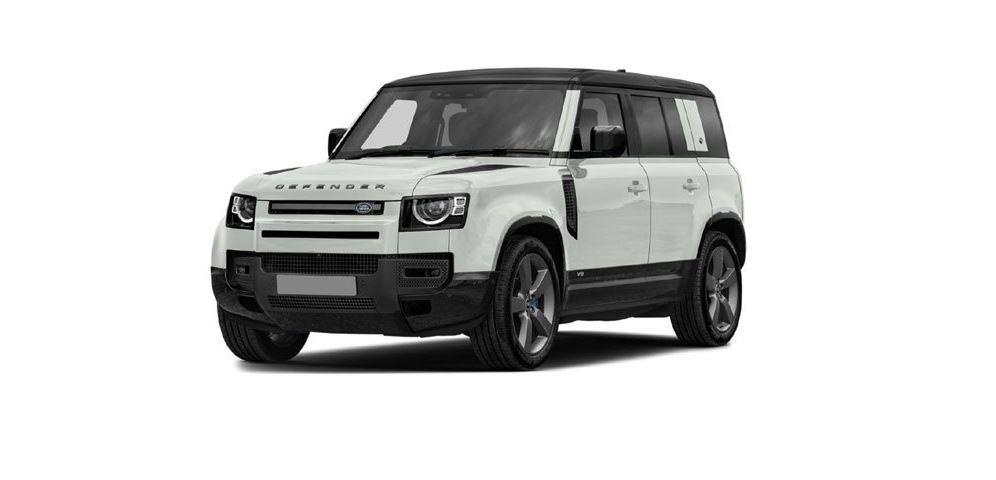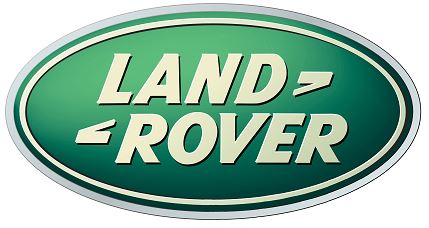2023 Land Rover DEFENDER REAR SEATS Owners Manual








REAR SEAT SAFETY
Make sure to read and fully understand the relevant warnings before using the features in this section. Failure to observe warnings and cautions may result in vehicle damage, injury, or DEATH in the event of an accident.
- Always make sure that objects carried in the vehicle are secured properly. Unsecured items can cause death or serious injury in the event of an impact or sudden manoeuvre.
- Never allow passengers to travel in the loadspace under any circumstances. All vehicle occupants should be seated correctly and wear a seat belt at all times when the vehicle is in motion.
- Make sure the locking mechanism is fully engaged when the seatback is raised. An unsecured seatback may not properly support an occupant during a collision or sudden stop.
- Make sure the seat belts are correctly routed and not trapped behind the seats when raising the rear seatbacks. An incorrectly routed seat belt may not properly restrain an occupant during a collision or sudden stop.
- Make sure the head restraints are raised to the correct position before the seats are used by a passenger. The head restraint must be positioned correctly to restrain rearward movement of the head in a collision.
- Always take note of the safety warnings and labels attached to the rear seats. The labels give advice on safely folding and raising the rear seats.
- Before folding a rear seat, make sure that the seat is not occupied. Make sure that no other occupant has any part of the body on the seat cushion. Make sure no one reaches into the area of the seat being folded. Pay particular attention when one seat is already folded. Reaching into this area creates a risk of entrapment and serious injury.
- Beware of trapping fingers when raising and lowering the rear seatbacks.
- Take care when retrieving items that have fallen down the side, back, front, or underneath the seat. Sharp objects may be present in these areas, which could present a risk of injury. Always stop the vehicle before retrieving items.
- Always make sure that objects carried in the vehicle are secured properly. In a collision or sudden stop, unsecured objects could be thrown inside the vehicle, striking and injuring occupants.
- Never allow passengers to travel in the loadspace under any circumstances. In a collision, people riding in this area are more likely to be seriously injured or killed.
FOLDING AND RAISING THE SECOND-ROW SEATS
- Make sure that you have read and fully understood the relevant warnings before using any of the features in this section. See REAR SEAT SAFETY.
- Make sure the locking mechanism is fully engaged when the seatback is raised. During an accident or sudden manoeuvre, an unsecured seatback could cause an injury to the seat occupant.
- Before folding or raising a rear seat, make sure the rear seat belts are fully retracted and positioned against their respective side of the vehicle.
- Before folding or raising rear seats, make sure any rear-fitted screens are not in the movement path of the folding seat. Damage may occur to the seat or the screen as a result of the two colliding.
The rear seatbacks can be folded flat.
To fold the rear seats flat:
- Pull the tab to lift the seat.
- Remove all three head restraints. See REAR HEAD RESTRAINT REMOVAL. NOTES
Tilt the head restraints fully forward before removal. - Stow the head restraints under the seats.
- Pull the lever to fold down the seat backs flat.
- When returning the seats to the raised position make sure to replace the head restraints before use.
The split-folding rear seatbacks can both be folded to accommodate large loads, or partially folded to accommodate large loads and still retain seating for passengers.
To fold a second row seatback:
- Push the button on the side of each head restraint. Fold the head restraints forward.
- Depending on the specification of your vehicle:
For 7 seat vehicles, pull the lever on the top of the seatback upward to release the locking mechanism.
For 5 seat vehicles, lift the lever on the side of the seat.
- Move the seatback forward until it is in the lowered position.
To raise a second row seatback:
- Lift the seatback until it firmly locks into the upright position.
- Raise the head restraints to the upright, locked position.
For 5 seat vehicles, a red indicator is visible beside the release mechanism if either the rear or rear centre seatback is not fully locked into place.
To raise a second-row seatback:
- Lift the lever on the side of the seat.
- Raise the seatback into the upright, locked position. Make sure that the seatback firmly locks into the upright position.
- Raise the head restraints to the upright, locked position.
To recline the second-row seatback: Lift the lever on the side of the seat and push the seatback into the reclined position.
To reset the seatback into the upright position: Lift the lever and pull the seatback forward into the upright position. Make sure the seatback firmly locks into the upright position.
The second-row seats can be moved forward.
To slide the seat forward:
- Pull up on the lever at the front of the seat.
- Pull the seat forward into the required position and release the lever.
The vehicle must not be driven with the second-row seats in the access position. Vehicle motion could cause the seatback to fall forward suddenly, potentially causing injury.
Make sure nothing is trapped beneath a seat when returning it from the access position. During an accident or sudden manoeuvre an unsecured seatback could cause an injury to the seat occupant.
When the seat and seatback are returned from the access position, make sure the locking mechanisms are fully engaged. Physically test to make sure that the seat and seatback are secure before driving. During an accident or sudden manoeuvre an unsecured seatback could cause an injury to the seat occupant.
To access or exit the third row seats:
- Pull the lever on the top of the seatback upward to release the locking mechanism. Move the seatback forward into the tilt position.
- Pull the seat into the fully forward position.
FOLDING THE CENTRE SEATBACK
Make sure that you have read and fully understood the relevant warnings before using any of the features in this section. See REAR SEAT SAFETY.
The second row centre seat belt incorporates a locking feature. The locking feature prevents the seat belt from being pulled out too far when the seatback is folded flat. To reset the feature, when returning the seatback to the upright position, extract the seat belt webbing until it stops. Return the seat belt webbing a small amount. The seat belt then operates as normal.
Head restraints need to be removed to achieve the maximum cargo space. See HEAD RESTRAINTS SAFETY.
The centre rear seatback can be released separately. To release the centre rear seatback, press and hold the release button. Simultaneously fold the seatback forward.
To fold the centre seatback: Press the release button on the top of the seatback. Fold the centre seatback forward into the lowered position.
To raise the centre seatback: Lift the centre seatback until it firmly locks into the upright position.
In an emergency, use the centre seatback to exit the third row seats.
A latch hook is positioned beside the release catch to guide the seat belt away from the seat edge when lowering and raising the seatback.
FOLDING AND RAISING THE THIRD-ROW SEATS
- Make sure that you have read and fully understood the relevant warnings before using any of the features in this section. See REAR SEAT SAFETY.
- The head restraint must always be raised when using the third row seats. The head restraint must be positioned correctly to restrain rearward movement of the head in a collision or sudden stop.
- Do not allow passengers to travel in the third row seats when the second row seats are in the folded or third row access position.
- Make sure the seat belts are correctly routed and not trapped behind the seats when raising the rear seatbacks. An incorrectly routed seat belt may not properly restrain an occupant during a collision or sudden stop.
- Beware of trapping fingers when raising and lowering a third row seat. Failure to do so creates a risk of entrapment and serious injury.
- Take care when retrieving items that have fallen down the side, back, front or underneath the seat. Sharp objects may be present in these areas, which could present a risk of injury. Always stop the vehicle before retrieving items.
To raise a third row seat:
- From inside the loadspace, pull the strap on the rear of the seatback. Lift the seat into the raised position. NOTES
Make sure the second row seats are not fully reclined. See FOLDING AND RAISING THE SECOND ROW SEATS. - From inside the passenger compartment, lift the head restraint, until it locks in the upright position.
The seat is heavy, so care should be taken when lowering the seat.
To fold a third-row seat:
- From inside the loadspace, pull the strap on the rear of the seat to release the head restraint locking mechanism. Fold the head restraint forward.
- Pull the strap to release the seat locking mechanism. Fold the seat forward.
FOLDING AND RAISING THE THIRD ROW SEATS
- Make sure that you have read and fully understood the relevant warnings before using any of the features in this section. See REAR SEAT SAFETY.
- The head restraint must always be raised when using the third row seats. The head restraint must be positioned correctly to restrain rearward movement of the head in a collision or sudden stop.
- Do not allow passengers to travel in the third row seats when the second row seats are in the folded or third row access position.
- Make sure the seat belts are correctly routed and not trapped behind the seats when raising the rear seatbacks. An incorrectly routed seat belt may not properly restrain an occupant during a collision or sudden stop.
- Beware of trapping fingers when raising and lowering a third row seat. Failure to do so creates a risk of entrapment and serious injury.
- Take care when retrieving items that have fallen down the side, back, front or underneath the seat. Sharp objects may be present in these areas, which could present a risk of injury. Always stop the vehicle before retrieving items.
The seat is heavy, so care should be taken when raising the seat.
To raise a third-row seat:
- From inside the loadspace, pull the strap on the rear of the seatback. Lift the seat into the raised position. NOTES
Make sure the second-row seats are not fully reclined. See FOLDING AND RAISING THE SECOND ROW SEATS. - From inside the passenger compartment, lift the head restraint, until it locks in the upright position.
The seat is heavy, so care should be taken when lowering the seat.
To fold a third row seat:
- From inside the loadspace, pull the strap on the rear of the seat to release the head restraint locking mechanism. Fold the head restraint forward.
- Pull the strap to release the seat locking mechanism. Fold the seat forward.
RESTRICTED REAR SEAT TRAVEL
If electric seat movement stops unexpectedly during folding or raising, check for and remove any obstructions.
Once any obstructions have been removed, continue the seat movement by pressing the appropriate button.
If no obstructions can be seen, and normal movement cannot be carried out, contact a retailer/authorised repairer.
Recent Posts
VW Jetta Engine Fuse Box Diagram
Access the comprehensive 2010-2018 VW Jetta Passenger Fuse Box Diagram to troubleshoot electrical issues effectively.…
VW Jetta Passenger Fuse Box Diagram
Explore the comprehensive VW Jetta Passenger Fuse Box Diagram to troubleshoot electrical issues effectively. Understand…
2023 Ford F-150 Lightning Fuse Box Diagram
Under Hood Fuse Box Location Remove the front luggage compartment cover. Under Hood Fuse Box…
2022 Kawasaki NINJA H2 SX SE Brake Lever Adjuster Owner’s Manual
2022 Kawasaki NINJA H2 SX SE Brake Lever Adjuster Owner's Manual NOTICE Only adjust the front…
2023 Land Rover Range Rover Evoque Exiting The Vehicle Owners Manual
2023 Land Rover Range Rover Evoque Exiting The Vehicle SINGLE LOCKING WARNING Before exiting the…
2023 Land Rover Range Rover Evoque Front Seats Owners Manual
2023 Land Rover Range Rover Evoque Front Seats FRONT SEAT SAFETY Make sure to read…
